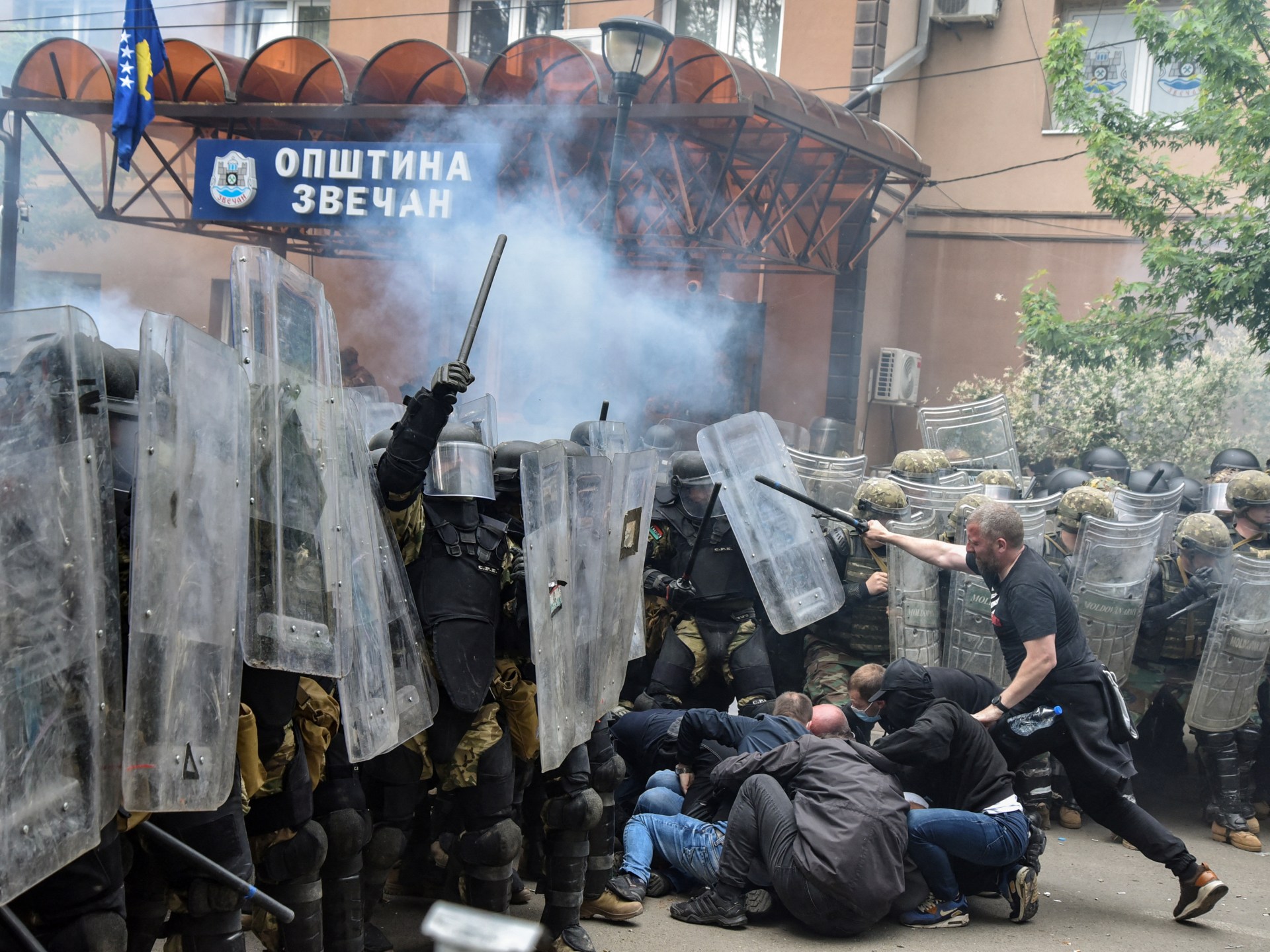The United States on Tuesday excluded Kosovo from a military training program in an apparent retaliation from Washington after Albanian presidents formally took office at the head of municipalities in cities in the north of the Serb-majority country, causing tension and clashes that resulted in dozens of injuries.
Earlier yesterday, NATO announced the dispatch of the Western Balkan Standby Operations Force to Kosovo to cope with the recent unrest in the north of the country, after 30 members of the international peacekeeping forces led by the alliance were injured.
NATO has also instructed to reduce the readiness period required to deploy another multinational reserve battalion from two weeks to just one week, in case international forces need to be reinforced.
Jeffrey Hovener, the US ambassador to Pristina, announced the exclusion of Kosovo from Defender 23, a joint military exercise program between more than 23 countries that began in April and is supposed to last until the end of June in Europe.
"For Kosovo, this training is over," Hovener told reporters.
The US ambassador also threatened to take unprecedented measures to end diplomatic support for international recognition of the Balkan country, whose independence remains disputed between Russia, China and some European countries.
"We have asked (Kosovar) Prime Minister Albin Kurti very directly to take immediate action to achieve de-escalation in the north, and he has not responded to these requests," he said.
In turn, US Secretary of State Antony Blinken again criticized - in a statement - Kurti, saying that his decision on mayors "exacerbated tensions severely and unnecessarily."
Blinken called on "all parties to take immediate action to defuse tensions," while condemning "unacceptable violence" against peacekeepers.
This region of Kosovo, where a large part of Serbs do not recognize Pristina's authority, has been tense since days, with Serbs boycotting April's municipal elections in these towns, leading to the election of Albanian mayors, despite a very small turnout of less than 3.5% of voters.
The government handed over formally elected municipal council members last week, and the prime minister ignored calls for calm.
Serbian protesters, who gathered especially in front of the municipality of Zvecan, are demanding the withdrawal of Albanian mayors and Kosovo police forces.
On Monday, the NATO-led international force tried to separate the two sides, before beginning to violently disperse demonstrators who responded by throwing stones, bottles and Molotov cocktails at soldiers.
A bombing campaign in 1999 forced Serb forces to withdraw from Kosovo, and the province, which declared independence in 2008, has seen frequent confrontations in the north, with Belgrade encouraging Serbs to challenge the country's authorities seeking to impose their sovereignty over the entire region.
Some 120,1 Serbs live in Kosovo, a country of 8.<> million people, the overwhelming majority of whom are Albanians.

